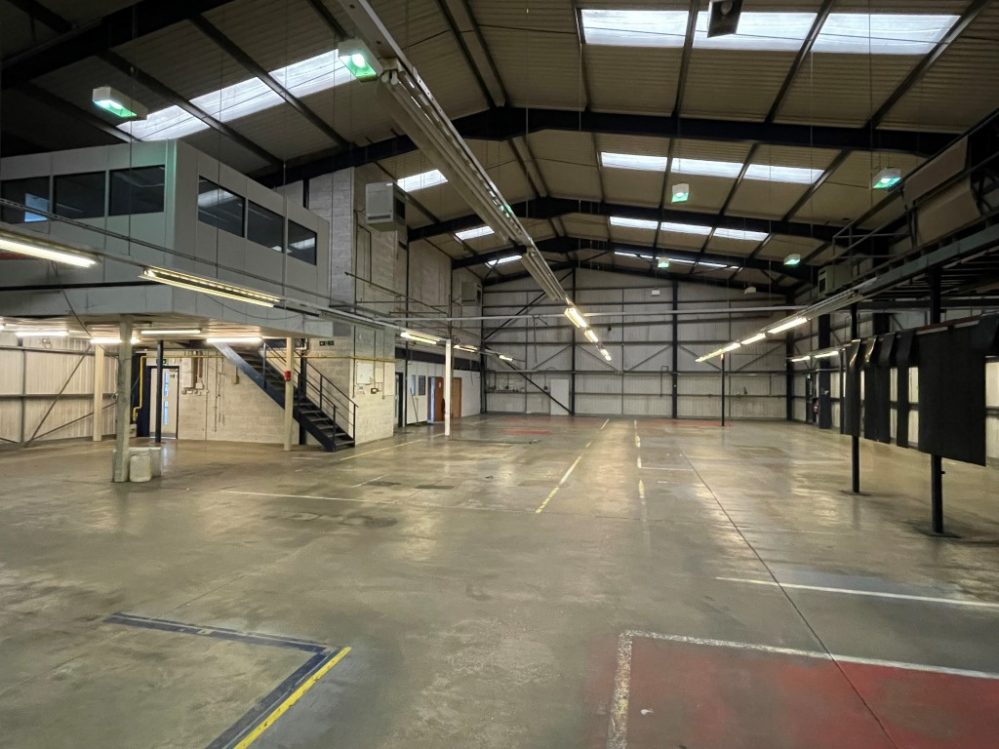Renting a Commercial Property - the complete occupier guide
PallMallRenting a commercial property is quite a task, and there are a
lot of different things to consider. As a result, we've decided to
put together this full guide on everything you need to know.
Hopefully it should help make everything a bit clearer.
First things first; what is a business
lease?
A business lease is a legally binding contract between the owner
of the commercial property (the landlord) and the occupier
(tenant). If either party fails to comply with the terms of
the agreement, it could result in court action.
In terms of being the occupier, The 2007 Code for Leasing
Business Premises (we'll simply refer to this as 'the lease code'
from now on) provides the framework for how the landlord should
operate. However, it's only guidance: it's not a guarantee
that the landlord will comply with it to the letter. As a
result, it's a good idea to educate yourself on what it
involves.
Lease negotiations
The landlords should make it very clear just what you're being
asked to agree on. As the occupier, you should clearly
understand:
The duration of the contract
The costs you will be expected to pay
Which areas you will be held liable for
What the terms and conditions are
What the property is and what the agreed boundaries and means
of access are.
Who the landlord is by name
You are well within your rights to request alternate terms if
you're unhappy with the initial ones, but the landlord is equally
able to request a change in rent or duration as a result of the
change you want. Just like any negotiation, it's about
striking a balance that allows both parties to be happy.
Rent deposits, guarantees and other financial
matters
As part of the agreement, the Landlord should provide full
details of expected costs involved when leasing the property,
including:
Bank guarantees
Company guarantees
Security deposits
Maintenance costs
Rent costs
Service charges
Utilities
If a deposit is required (which it often will be) then the
conditions under which it is taken should be made clear. The
deposit is your money, not the landlord's.
It may be that you're asked to provide some form of
guarantee. Whether you choose to do so is entirely up to you,
but do not use your home as security (this is sometimes
requested). Be sure that you are clear in which
circumstances your landlord may call on the guarantee you give, and
also what the guarantee will be expected to cover.
NOTE. The best way to think of a guarantee is what would
happen if it was called on the first day of the lease: would you be
able to handle the consequences?
Reviewing the rent and making changes
Your lease may contain provisions that allow the landlord to
change the rent. This is fairly standard, but the rules
should be clear before you agree to them: it is obviously important
that the landlord not be able to simply impose an increase whenever
they want to. The basis for the rent review should always be
the market rent unless stated otherwise, and this should be taken
from a published, independent and authoritative source.
The open market rental value provision should specifically
exclude any improvements you make as well as any that arise from
your own businesses' successes, unless they're part of the lease
agreement.
The lease should also include a provision allowing you to serve
a rent review notice on the Landlord. This can help you to
avoid paying interest on any increase in rent from the appropriate
rent review date. Ensure that the interest rate on the
difference is no higher than the bank's base rate, and avoid adding
strict time limits to the rent review clause.
Subletting
Some leases allow subletting. There are usually
restrictions in place regarding the amount of space, the use of the
space and the rent you can charge, so it's important to be aware of
these if you're planning to sublet.
Typically, landlords will insist that sub-leases are granted
outside the protection of the Landlord and Tenant Act 1954, but
with similar terms to your existing lease. You will usually
be expected to guarantee the lease if you're going to assign it to
a third party.
Length of the lease
The landlord should make clear the length of the lease upfront,
and should specify any circumstances under which it is permissible
to break it. It should also be specified whether you'll be
entitled to an extension on expiry.
An official right to break will allow you to walk away from the
lease at any time, presuming you have notified the landlord in
writing. This will usually only be permissible after you've
paid the rent due and given up the property and leaving no
sub-leases behind. BEAR IN MIND: The principal rent must
clear before the break date. Check that no additional charges are
required to clear as well.
When your lease concludes (either due to a break or the expiry)
you will be liable for any sum that arises as a result of damage
done to the property. The Landlord and Tenant Act 1954 gives
you the right to extend your tenancy when the lease runs out unless
the landlord can demonstrate specific circumstances such as
redeveloping the property or occupying the space themselves.
Ensure that you obtain professional advice to ensure your interests
are served and protected.
Service charges
As is the case with residential property rental, service charges
are typically included as part of rental rates. However, you
should always ask the landlord to be explicit regarding
which service charges will be included and how you'll be
calculated. Also check whether you'll be asked to contribute
to any capital improvements, such as:
Long term repairs or replacements of structures
Repairs of fabric
Maintenance and repairs of machinery and equipment
Repairs are often a contentious issue. You should
establish whether or not it'll be your responsibility to carry out
works on the property during the lease period. On some
leases, the occupier will be required to put the property into a
better condition than it was in when the lease was actually taken,
so ensure that this isn't the case. You will, however,
usually be required to keep the property in the same condition it
was in when you took the lease.
It's also a good idea to check if any alterations or
improvements will be covered under the landlord's policy.
Defaulting
It's important to remember that your lease is a legal contract
between you and your landlord, and that there will be serious
consequences should you breach the contract. The landlord can
take legal action against both you and any guarantors.
Property laws can be extremely complex, and you should
definitely seek professional legal advice in order to be clear on
what your rights are.
It's important that the landlord notify you if you're in breach
of your contract, and give you a reasonable opportunity in which to
remedy the breach before legal action is taken.
Wherever possible, you should try to remain on good terms with
your landlord; this will make almost any situation easier to
handle, and will allow you to run your business with minimal
outside interruptions.
Applications for obtaining consent
You will need to make applications to the Landlord during the
lease if you're planning to carry out any alterations or if you
want to sublease. Your own lease should specify that the
landlord doesn't have permission to unreasonably withhold or delay
his consent in matters such as this.
Organisations that endorse the code
Association of British Insurers
www.abi.org.uk/
British Council for Offices
www.bco.org.uk
British Property Federation
www.bpf.org.uk
British Retail Consortium
www.brc.org.uk
Communities and Local Government
www.communities.gov.uk
Confederation of British Industry
www.cbi.org.uk
CoreNet Global
www.corenetglobal.org.uk
The Forum of Private Business
www.fpb.org.uk
Federation of Small Businesses
www.fsb.org.uk
Investment Property Forum
www.ipf.org.uk/
The Law Society of England and Wales
www.lawsociety.org.uk
The Royal Institution of Chartered Surveyors
www.rics.org
Welsh Assembly Government
www.wales.gov.uk/index.htm
Other useful links
The Code for Leasing Business Premises
in England and Wales 2007
www.leasingbusinesspremises.co.uk
Bills before Parliament
www.publications.parliament.uk/pa/pabills.htm
Building Regulations
www.communities.gov.uk/index.asp?id=1130474
Health and Safety Executive
www.hse.gov.uk
Service Charge Code
www.servicechargecode.co.uk
Town Planning (Link Site)
www.ukplanning.com/ukp/index.htm
Uniform Business Rates
www.voa.gov.uk
—
Pall Mall Estates have a wide range of low cost commercial properties across the UK.
Take a look at our available spaces here or get in touch with our experienced team here.







